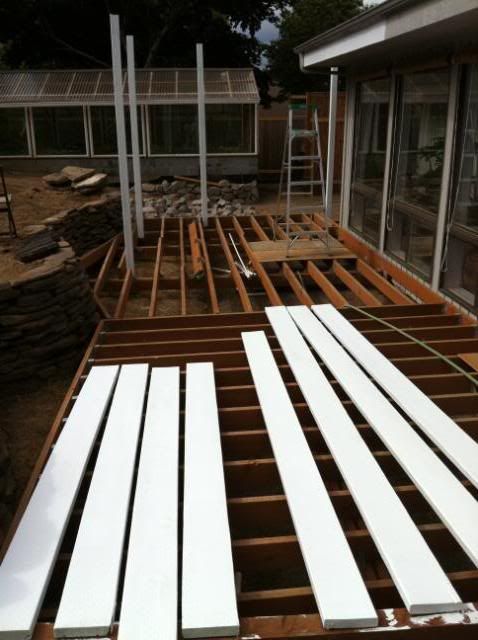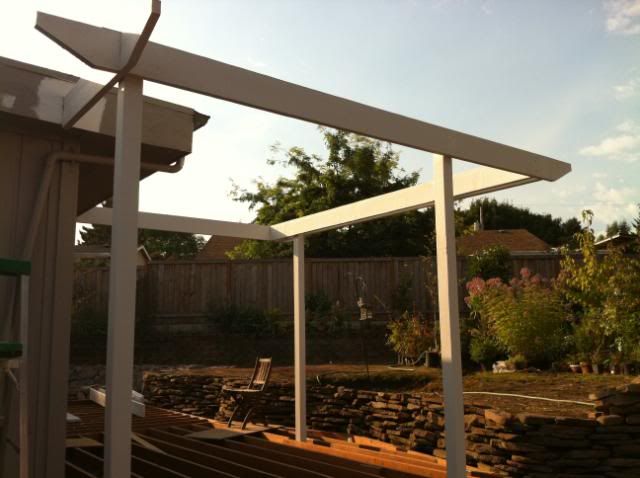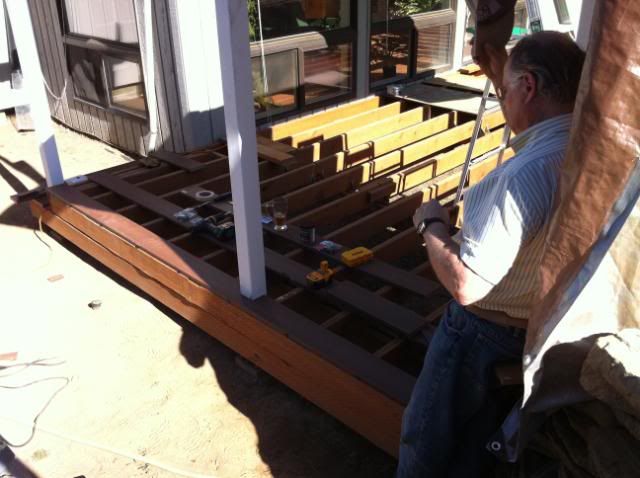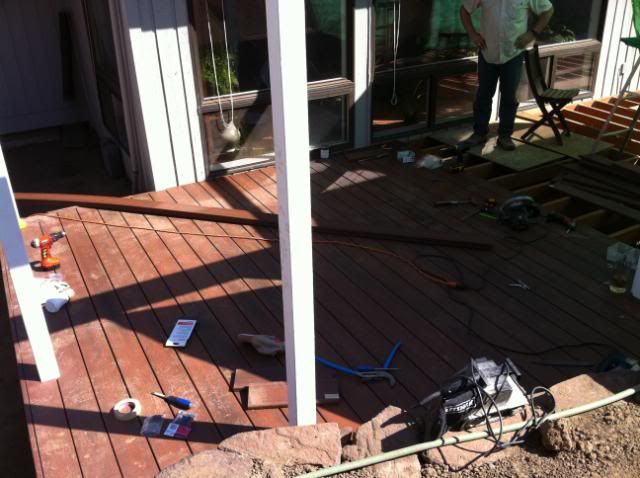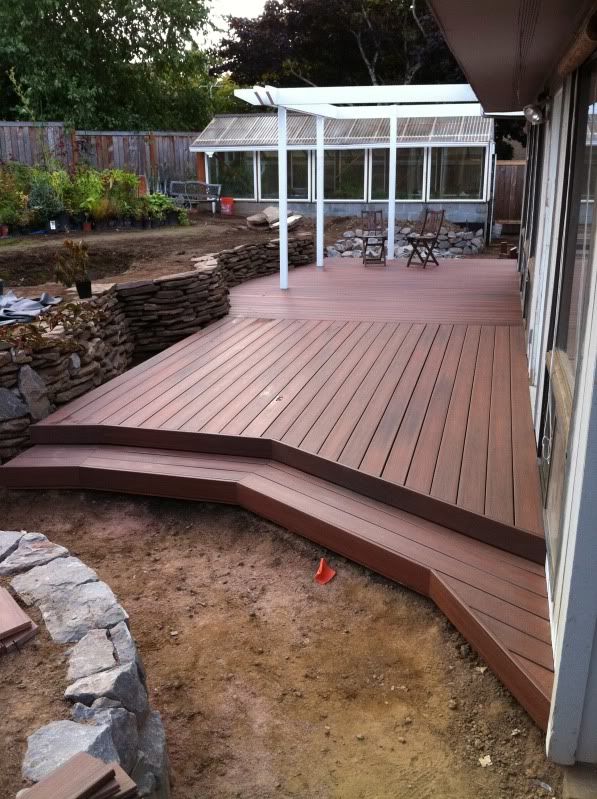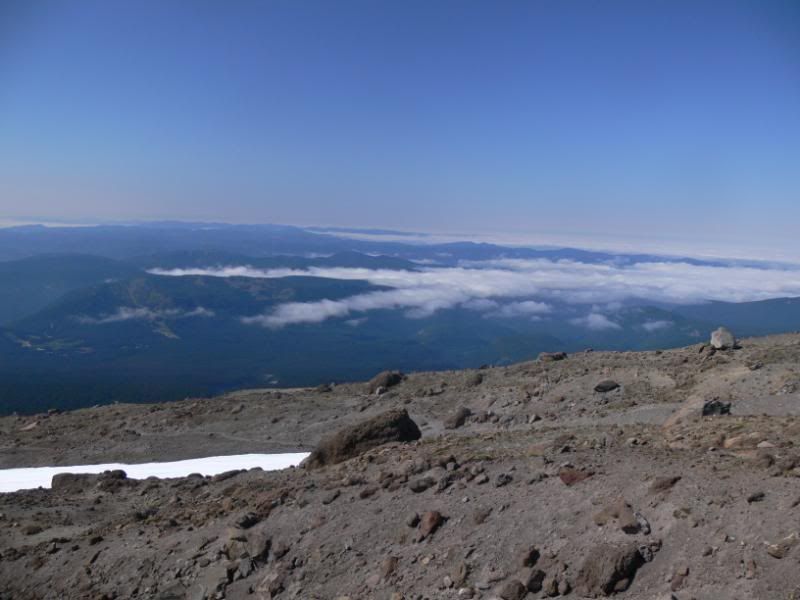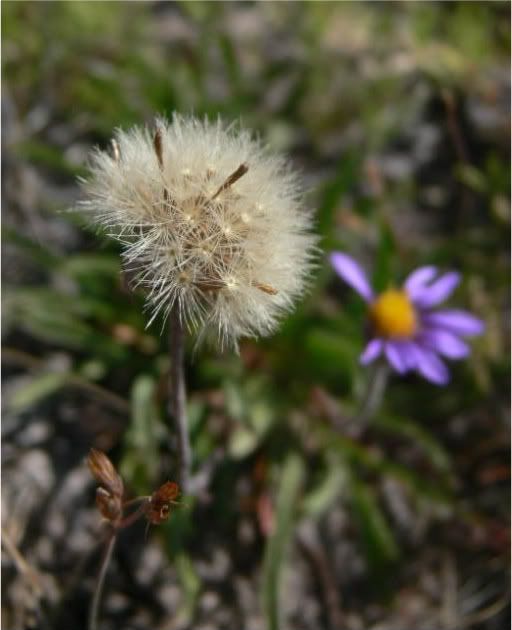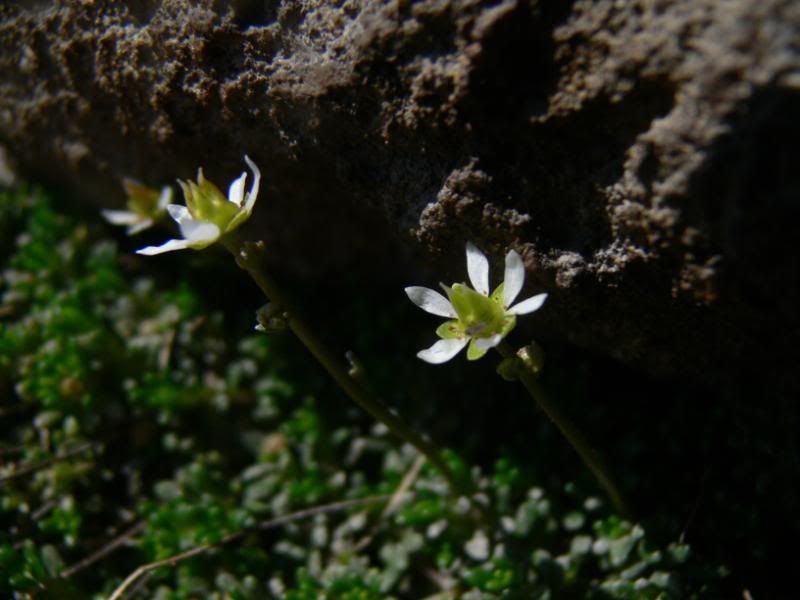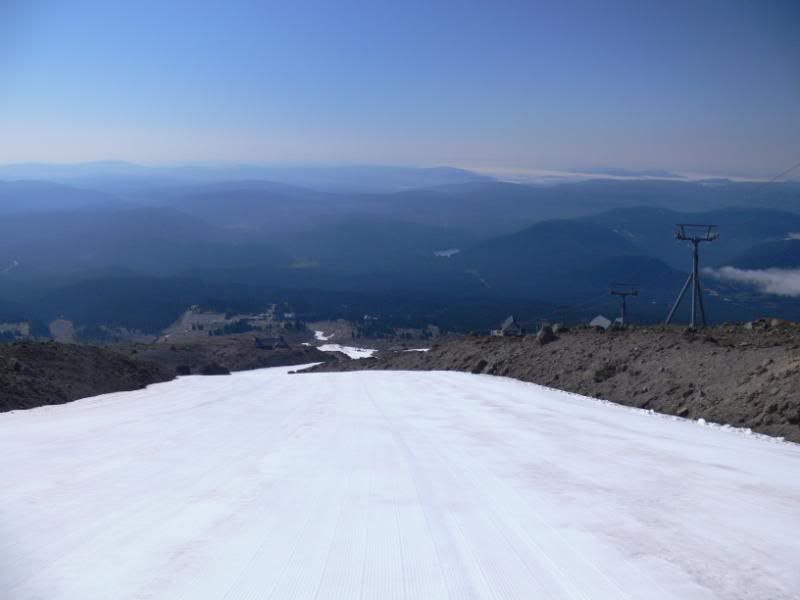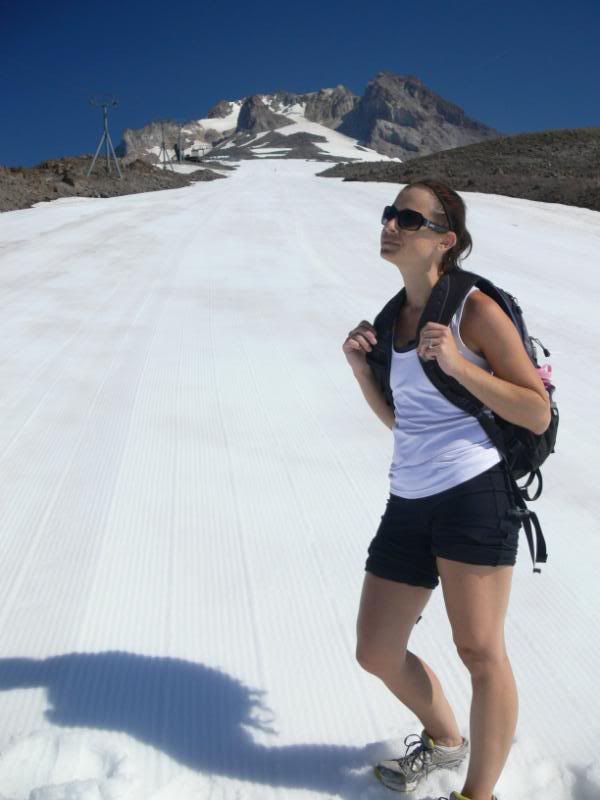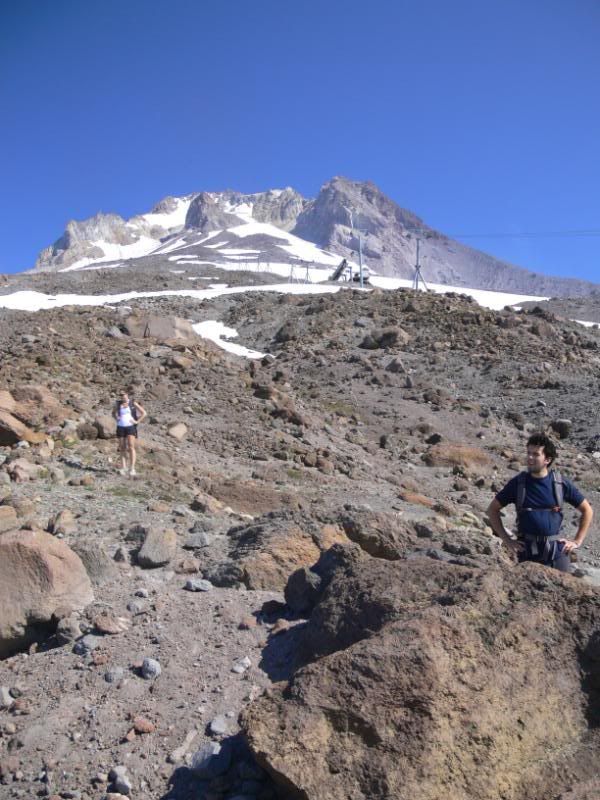It was HOT in Portland, so I woke up at 5am and drove to Mt Hood. It was only in the 70s up high, which was still a bit warmer than I would have preferred. It was nice early in the morning!
First, stopped at Mt Hood Meadows again. Growing in the gravel alongside the road was Lupinus lepidus, still in bloom. I was finally able to get a couple seeds from it!
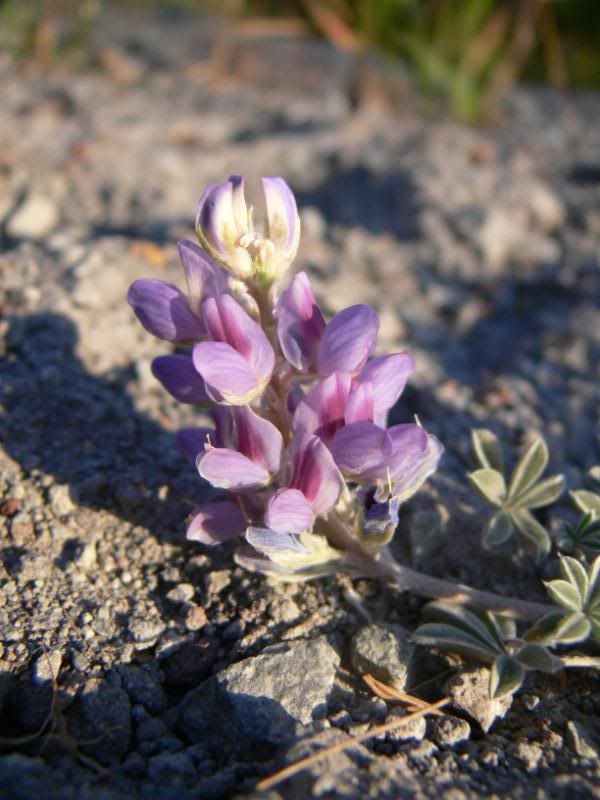
Down in the stream valley is a large bog with long morning shadows. Castilleja suksdorfii brightened up the meadow.
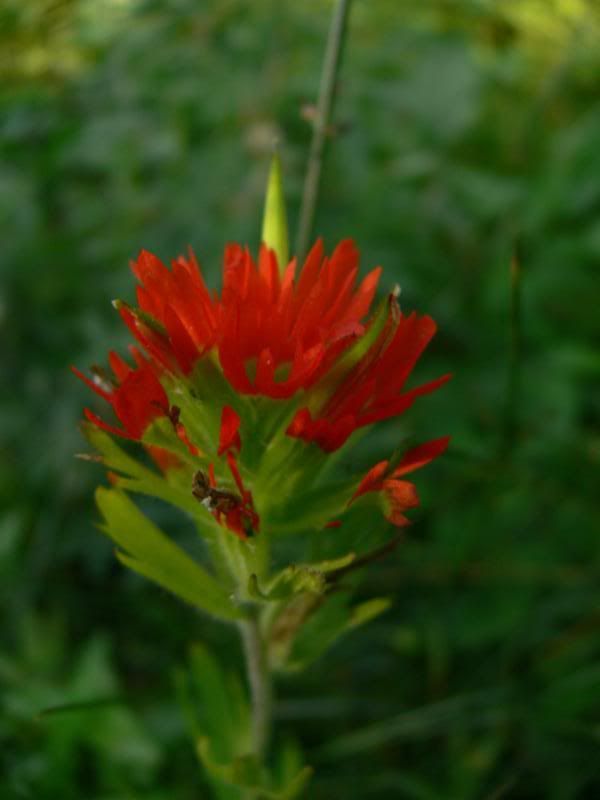
In the wild Epilobium angustifolium doesn't look like a weed.
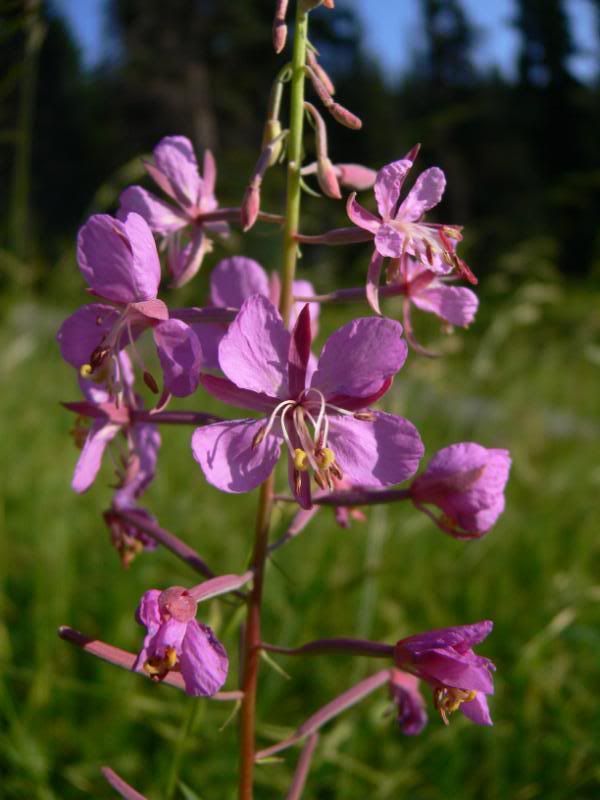
I actually found two plants of Spiranthes romanzoffiana! This plant is very rare on Mt Hood. I suppose it might be Spiranthes porrifolia... I don't remember the differences. Spiranthes porrifolia is even rarer.
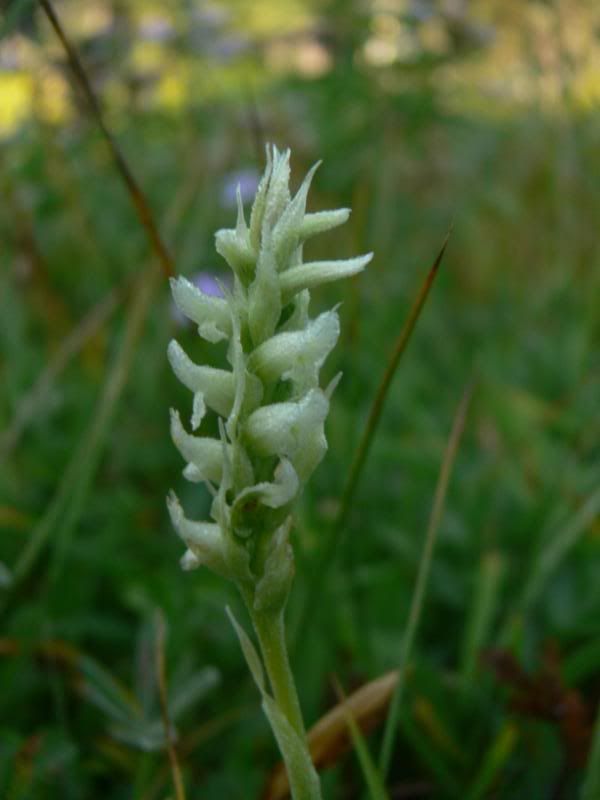
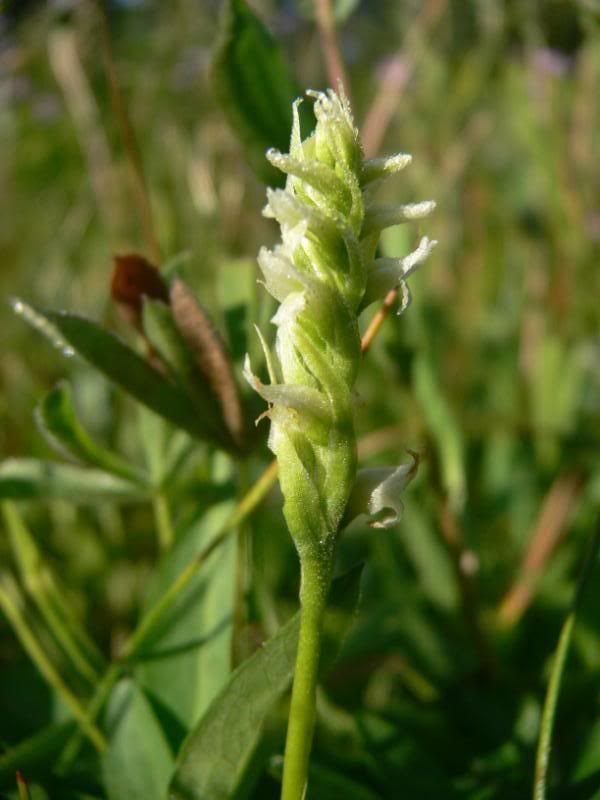
The meadow was dominated by Goldenrod, Solidago elongata.
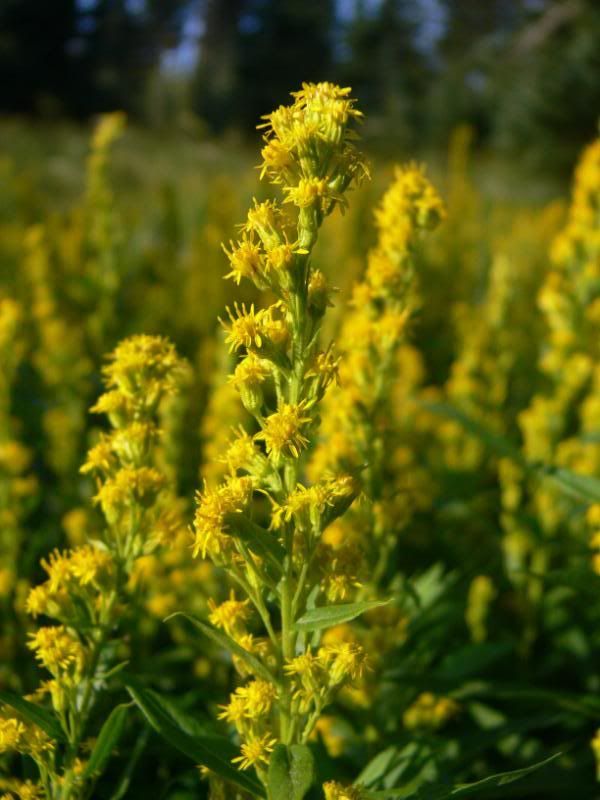
In the background, a Sorbus with bright red berries favored by the birds.
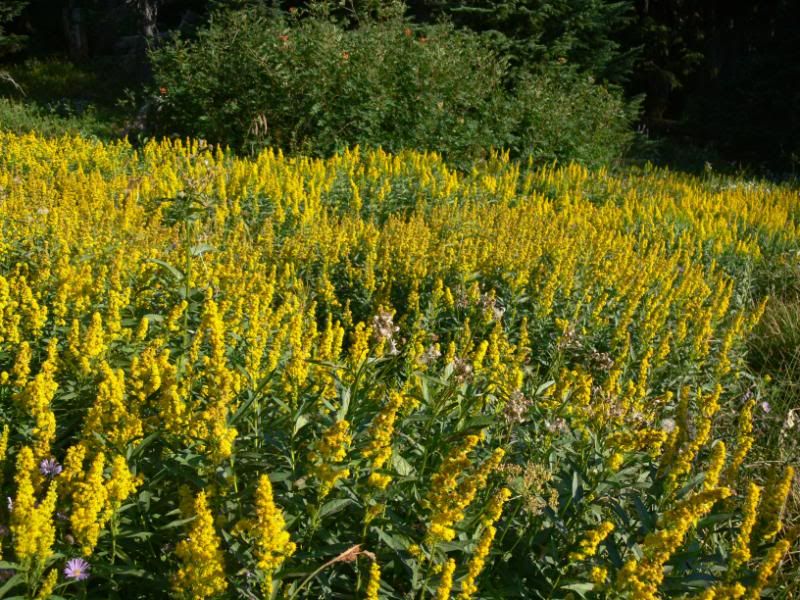
A quarter mile along the trail is Umbrella Falls.
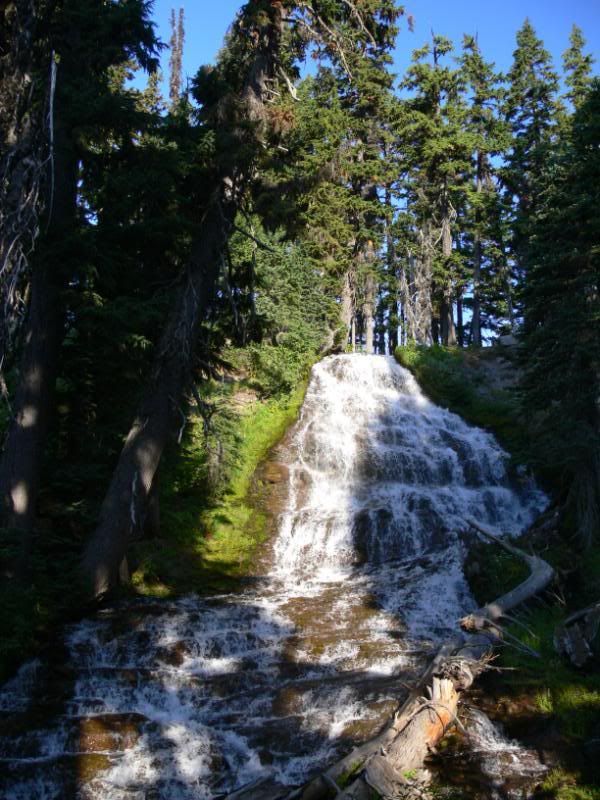
After I left the Meadows, I drove out Hwy 44 looking for Lilium washingtonianum seed. Most of the pods were eaten by deer! As I was getting ready to give up, success: this is exactly what I wanted to see. Most plants have 1 to 4 flowers while this one had 10.
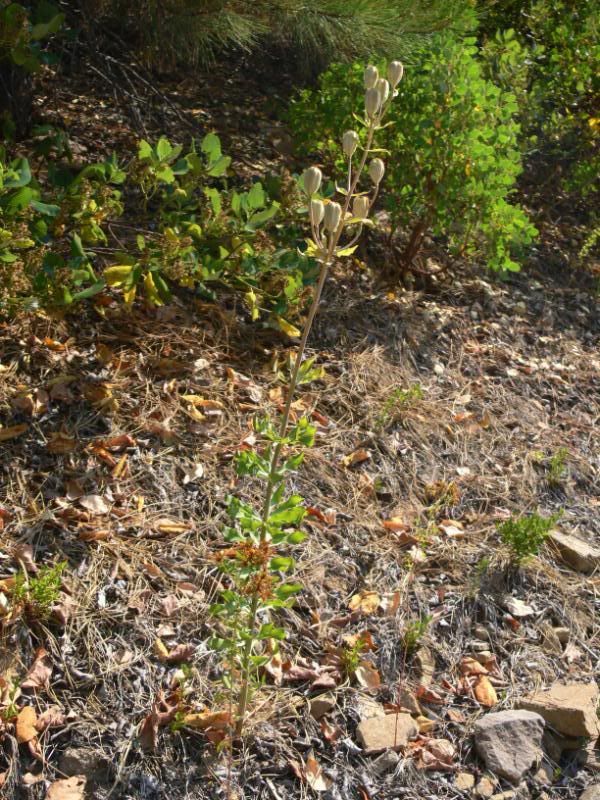
By noon, heat related uncomfortableness was beginning to accumulate, so I drove to Timberline where the temperature was more conducive to enjoyment.
I, for untold reasons, have a soft spot for decumbence amongst plants. Here is the diminutive Antennaria umbrinella.
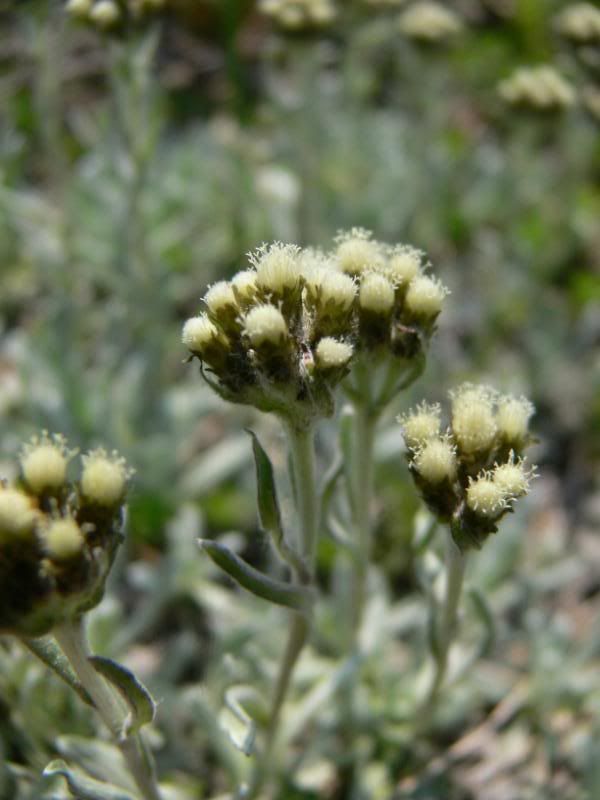
And the recumbent alpine Spraguea umbellata var caudicifera.
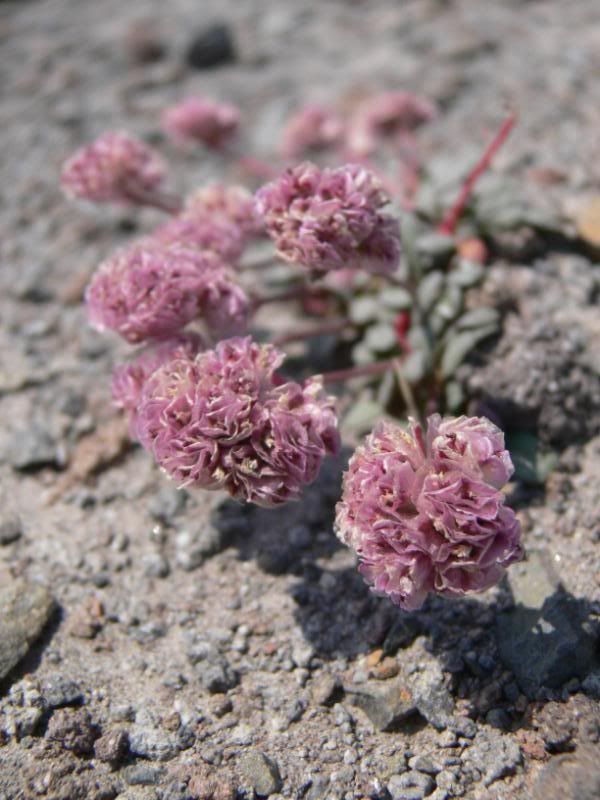
Me thinks that this is Eriogonum compositum. For some reason it's hard to find information of the Buckwheat family online... It's colorful, compact and drought resistant: you would think there would be more interest in the genus.
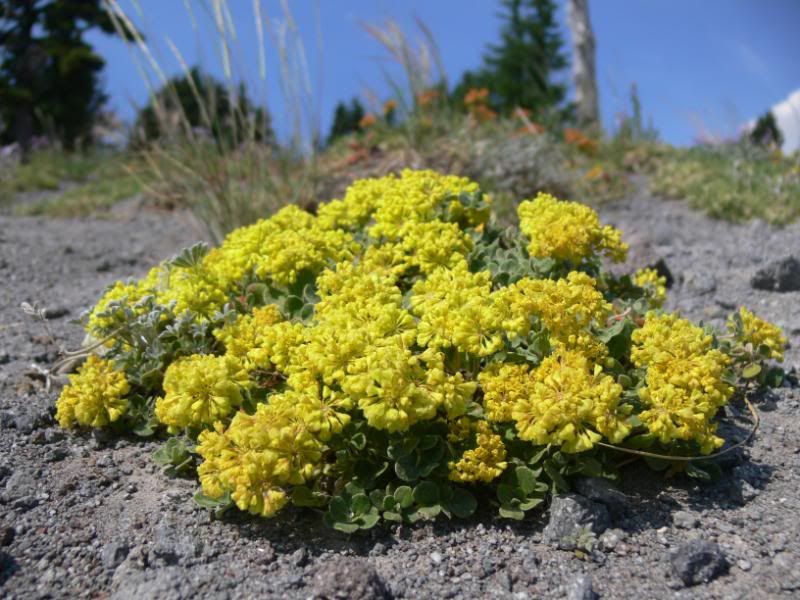
A close-up of a more orange-flowered plant. The red leaves on the plant in the background are Polygonum newberryi var. newberryi.
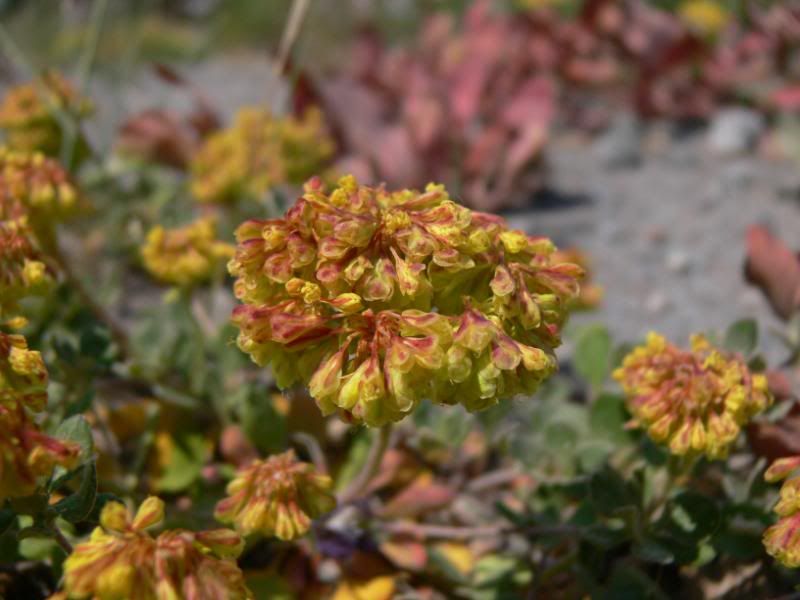
The Lupinus latifolia are still blooming en masse. They have a very nice fragrance when there are this many of them at once.
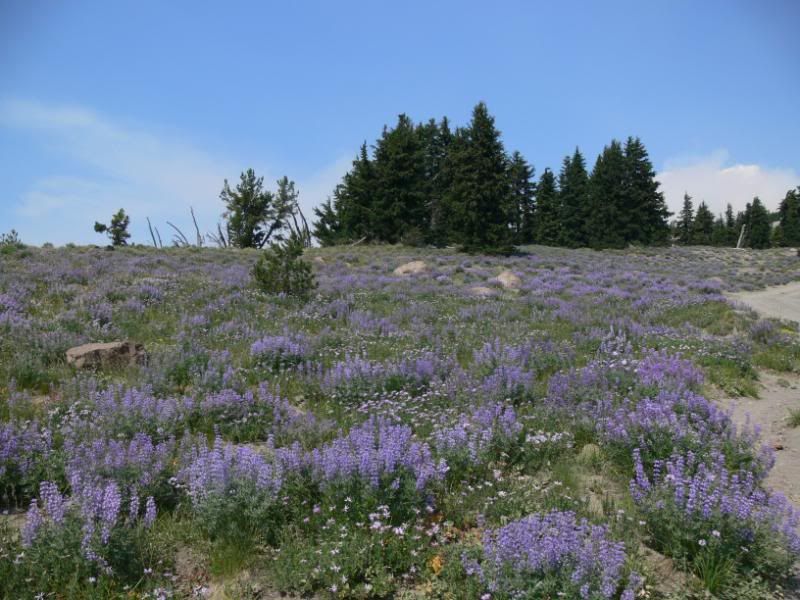
Most aren't white.
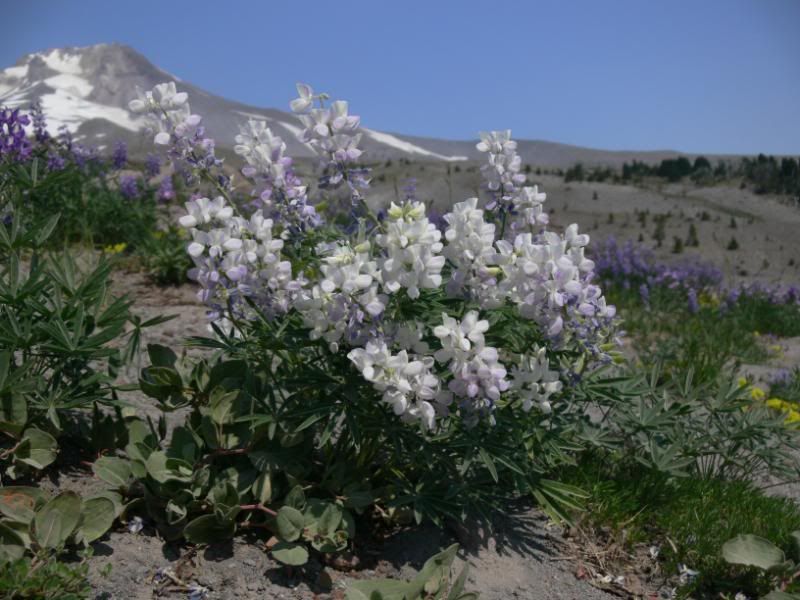
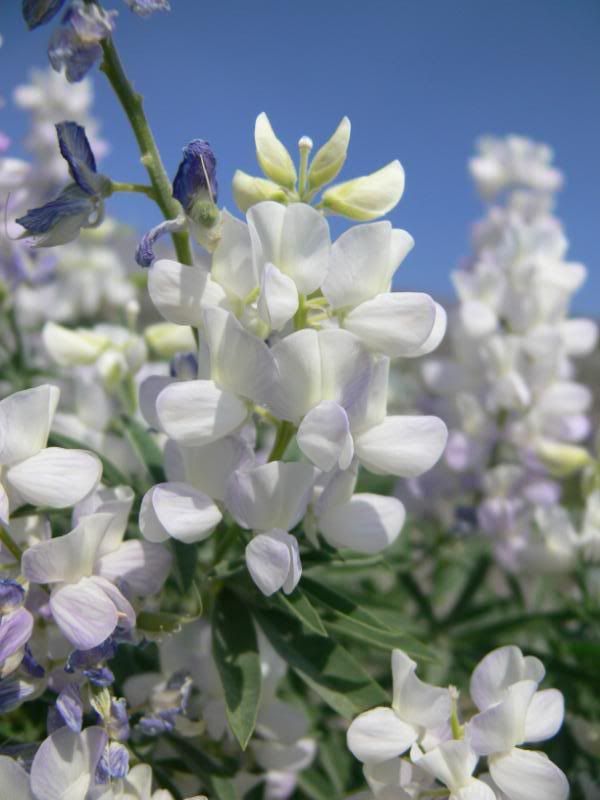
Growing in Glacial runoff, Castilleja parviflora var oreopola.
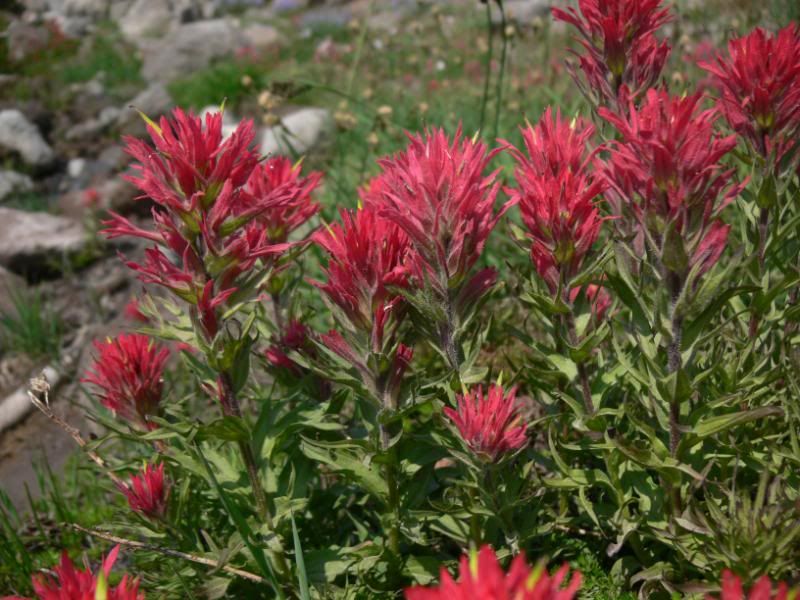
Speaking of Glacial activity, I leave you with an epistemological proof.
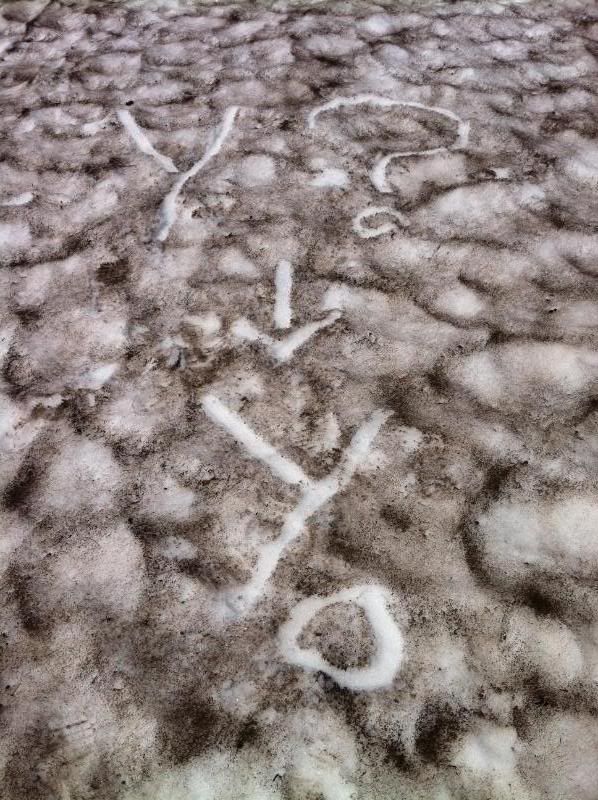
Before ending, I would like to mention that I picked up a lot of trash at Timberline, scattered amongst the boulders. If you're out there enjoying yourself and see a wayward bottle left by some troglodyte-esque miscreant, don't assume that someone else will get it. This is public land: it's yours! Take care of it as if it were your backyard. Evidenced below, karma: fiver found amongst the rubbish.

